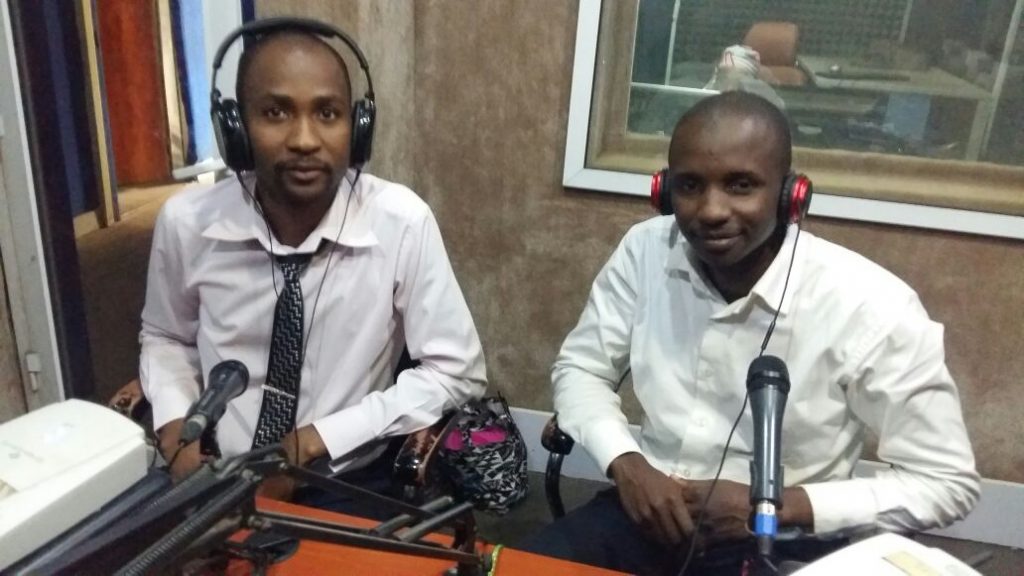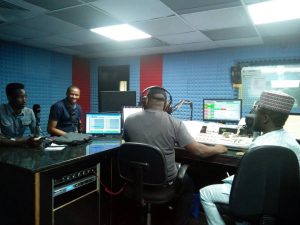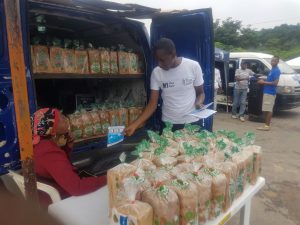-
What We Do
- WHERE WE WORK
-
About Us
 Welcome Message from Carol Jenkins
Welcome Message from Carol JenkinsFor more than 90 years, World Learning has equipped individuals and institutions to address the world’s most pressing problems. We believe that, working together with our partners, we can change this world for the better.
On my travels, I’ve had the opportunity to meet with many of those who have joined us in this mission. In Baghdad, we’ve trained more than 2,300 Iraqi youth who are already giving back at home. In London, our partners in the TAAP Initiative strongly believe that we are all responsible to practice inclusion. And in Vermont, our Experiment in International Living and School for International Training participants prove every day that they have the tools and the determination to change the world.
Please join us in our pursuit of a more peaceful and just world.
- Get Involved
Media Center > Story
Saied Tafida is Fighting Corruption and Creating a Culture of Accountability in Nigeria
May 29, 2019

Saied Tafida is passionate about ending corruption.
That’s why he’s leading efforts in Nigeria to promote fiscal transparency, monitor the justice system, and empower citizens to hold their public officials accountable. “I believe open governance will change everything,” he says. “We just want to open everything.”
In recent years, Tafida has made marked progress toward that goal — a feat he credits to his participation in a 2016 seminar organized by Alumni Thematic International Exchange Seminars (Alumni TIES) in Nairobi, Kenya. At the seminar, he met and exchanged ideas with other young African leaders. The experience not only inspired him to pursue new avenues in his work, but he was also able to obtain a grant from Alumni TIES to help him do so.
Sponsored by the U.S. Department of State with funding provided by the U.S. government, Alumni TIES brings together alumni from U.S.-funded international exchange programs for additional training and collaboration focused on particular themes. Participants have the opportunity to apply for small grants to help them carry out projects in their communities.
At the 2016 Nairobi seminar, Tafida and his fellow participants were all alumni of the Mandela Washington Fellowship for Young African Leaders, which empowers young people through academic coursework, leadership training, and networking. Tafida was a Mandela Washington Fellow in 2014, traveling to the U.S. to study at Syracuse University’s Maxwell School of Citizenship and Public Affairs.
Tafida took advantage of that first exchange opportunity to learn more about open governance. He’d already begun to understand the importance of transparency through his work in public relations for a Nigerian television station and, later, local government tax agencies. But his coursework at Syracuse, particularly a class about how to use social media for open governance, gave Tafida the practical skills he needed to become an effective advocate.

In 2015, upon his return to Nigeria, Tafida founded FollowTaxes, an online platform that educates taxpayers on their rights and obligations. As he explains, this knowledge protects citizens from being taken advantage of by corrupt tax officials who might otherwise inflate the amount of money owed and pocket it for themselves. “That’s the power of knowledge,” Tafida says.
Beyond educating the public, Tafida also knows that it’s critical to hold corrupt officials accountable for their actions. Yet, too often, corruption cases drag through the courts — which are part of an opaque and corruptible system — and are quietly thrown out. But while Tafida wanted to take on corruption in the criminal justice system next, he wasn’t sure how to start.
That changed at the 2016 Alumni TIES conference.
Tafida took notice when one of the Mandela fellows from South Africa spoke about his work in the justice sector, pointing out that corruption is composed of a triangle of vices: money laundering, tax evasion, and judicial corruption. FollowTaxes was already working on the first two, Tafida says. “We had to add the third angle of the triangle.”
Inspired by the seminar, Tafida launched TransparencIT, an NGO that tracks major corruption cases in the courts and shares that information with the public. Through this work, he says, prosecutors and judges alike have been more in careful in ensuring that cases are properly handled. “You don’t need to hire a forensic auditor to ask if a certain judge is doing his work,” Tafida says. “No, people alone can do it.”
Alumni TIES also influenced Tafida’s work in other ways. Through the seminar, Tafida developed a partnership with a Mandela fellow from Togo. Together, they applied for — and won — a $10,000 Alumni TIES grant to expand FollowTaxes to Togo and increase its reach in communities with limited internet access in both countries.
With that grant money, Tafida and his partners have been able to host town hall meetings in local communities and create social media campaigns to raise awareness among citizens about their right to hold their government officials accountable. They also opened a transparency center to guide people on how to use their tools as well as how to build on their model to track government systems themselves.
“If only one person knows what you’re supposed to do, it’s easy to bribe that one person,” Tafida says. “But when there are a thousand people that know exactly what you’re supposed to do, bribing those people is going to be difficult.”

This grassroots approach has already yielded successes. Tafida recalls meeting with one frustrated community in Nigeria, where the local government had spent about U.S. $120,000 to build and open a hospital. Though the developer built the hospital on time, it sat vacant and empty for months. Community members worried the developer would demand more money to actually equip and open the hospital, even though that had been part of their original deal.
At Tafida’s prodding, the elders of the community went together to meet with the developer. They thanked him for his role in building the new hospital, telling him that they’d seen the records on the deal and knew he was the one who brought such an important service to the community. As Tafida explains it, the developer realized that if the community members had seen the records then they would know that equipping the hospital was part of the original deal.
“Within weeks, the hospital was equipped,” Tafida says.
It’s not just citizens who are benefiting from Tafida’s open governance work, though. “You’d be surprised how happy the government is with our activities,” he says. Now that Nigerian citizens have greater oversight of their government’s activities, they’re more satisfied with the work of their public servants. And the government, not Tafida, gets to take credit for that transparency. He’s okay with that; all that matters to him is that the government and the public are communicating.
Encouraged by these successes, Tafida is motivated to keep reaching as many people as possible. One by one, he says, they can change Nigeria’s culture to one where citizens ask questions of their government and elected representatives recognize that they’re supposed to serve the public. “Changing such culture will take time,” he says. “But this is where we’re headed and this is where we’re going to get.”
Alumni TIES is sponsored by the U.S. Department of State with funding provided by the U.S. government and administered by World Learning.





